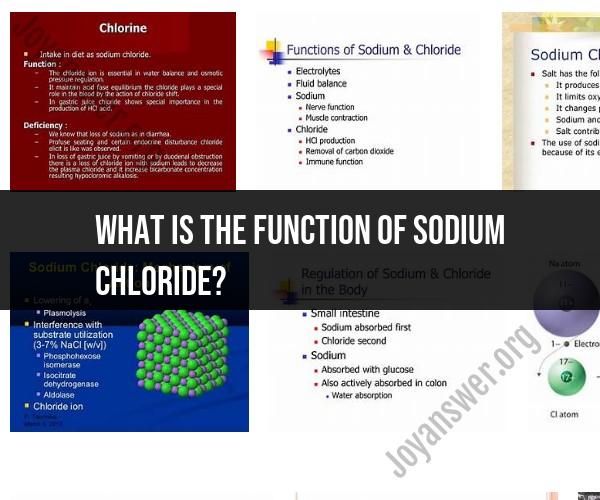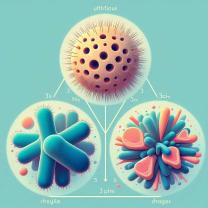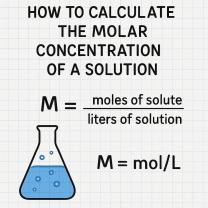What is the function of sodium chloride?
Sodium chloride, commonly known as table salt, serves several essential functions in the human body and in various industrial and scientific applications. Here are some of its primary functions:
Electrolyte Balance: Sodium chloride plays a crucial role in maintaining electrolyte balance in the body. It is one of the main electrolytes, along with potassium, calcium, and magnesium, responsible for regulating fluid balance and electrical activity in cells. Sodium ions (Na+) and chloride ions (Cl-) are involved in nerve transmission, muscle contraction, and maintaining proper cell hydration.
Fluid Balance: Sodium chloride helps regulate the body's fluid balance by controlling the movement of water in and out of cells. It helps maintain blood pressure and blood volume by influencing the osmotic pressure of bodily fluids.
Nerve Function: Sodium ions are essential for the generation and transmission of nerve impulses. They help initiate action potentials, which are electrical signals that travel along nerve cells to transmit information throughout the nervous system.
Muscle Contraction: Sodium ions are critical for muscle contraction, including both skeletal muscles (voluntary muscles) and smooth muscles (involuntary muscles like those in the digestive tract). They play a central role in the excitation-contraction coupling process.
Digestion: Sodium chloride contributes to the production of hydrochloric acid (HCl) in the stomach, which is necessary for the digestion of food, particularly proteins. HCl helps break down food and activates digestive enzymes.
Preservative: Sodium chloride is widely used as a food preservative to extend the shelf life of various foods, especially meats, pickles, and canned goods. It inhibits the growth of bacteria, molds, and yeasts that can cause spoilage.
Seasoning: In cooking, sodium chloride (table salt) is a popular seasoning that enhances the flavor of food. It also contributes to the overall taste balance in recipes.
Industrial and Chemical Applications: Sodium chloride has numerous industrial uses, including in the production of chlorine gas, sodium hydroxide (caustic soda), and as a de-icing agent for roads and sidewalks in colder climates.
Medical and Saline Solution: In the medical field, saline solutions made from sodium chloride and sterile water are used for various purposes, such as intravenous hydration, wound cleansing, and nasal irrigation.
Laboratory and Scientific Research: Sodium chloride is often used in laboratories for various purposes, including as a reagent in chemical reactions and for creating controlled environments in experiments.
While sodium chloride is essential for various bodily functions, it's important to consume it in moderation. Excessive salt intake can contribute to health issues like high blood pressure and cardiovascular diseases. The recommended daily intake of sodium varies by age and health status, but it's generally advised to limit salt consumption and choose low-sodium alternatives when possible to maintain good health.













